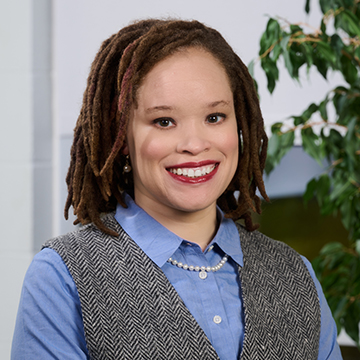Speaker Series: Kamaria Porter

Black and Latina women experience higher rates of unwanted sex, assault, and harassment, yet rarely report these incidents to police or campus officials (Harris, 2023: Slatton & Richard, 2020; Washington, 2001). To date, most research on campus sexual assault reporting focuses on white, heterosexual, cis-gendered women at elite institutions (Brubaker et al., 2017; Sabina & Ho, 2014). In this study I examined factors that influenced Black and Latina women and non-binary students’ decision to report sexual assault to police and/or university officials. I used a conceptual framework that combines intersectionality and the theory of legal consciousness. Instead of examining the effects of racism or sexism in isolation, intersectionality holds that these systems of power interlock and shape each other (Crenshaw, 1989, 1991). Black women, being marginalized by anti-Black racism and sexism, experience particular forms of exclusion at the intersection of racism and sexism (P. H. Collins, 2000; Crenshaw, 1991). The theory of legal consciousness explores how people perceive the legal system and use concepts associated with the law to interpret everyday experiences, particularly when they are harmed (Ewick & Silbey, 1995; Marshall, 2003). This presentation focuses on the 15 of 66 participants who entered a criminal or university grievance process, exploring their evaluation of reporting processes based on interactions with police, complaint officers, the legal system, and Title IX policy procedures. This research has implications for policy implementation and exploring legal cynicism among university student survivors.
To register, contact Sophie Kofman at skofman@abfn.org.
Kamaria B. Porter, PhD. (she/her) joined the Office of the Ombudsperson as Associate Ombudsperson in July 2024. Prior to joining Northwestern University, Kamaria served as an Assistant Professor of Higher Education at Penn State University. There she taught a range of courses related to higher education, including administration and organizational theory, history and critical issues in higher education, and research methods. Kamaria’s research broadly explores inequities in higher education, focusing on faculty experiences on the tenure track, graduate student success in STEM departments, and Title IX policy. She earned her PhD in Higher Education at the University of Michigan. While there, she managed a research lab on university policy responses to sexual harassment and assault, investigated practices to prevent harassment in academic units, and organized interdisciplinary learning and mental health programming for graduate students.

